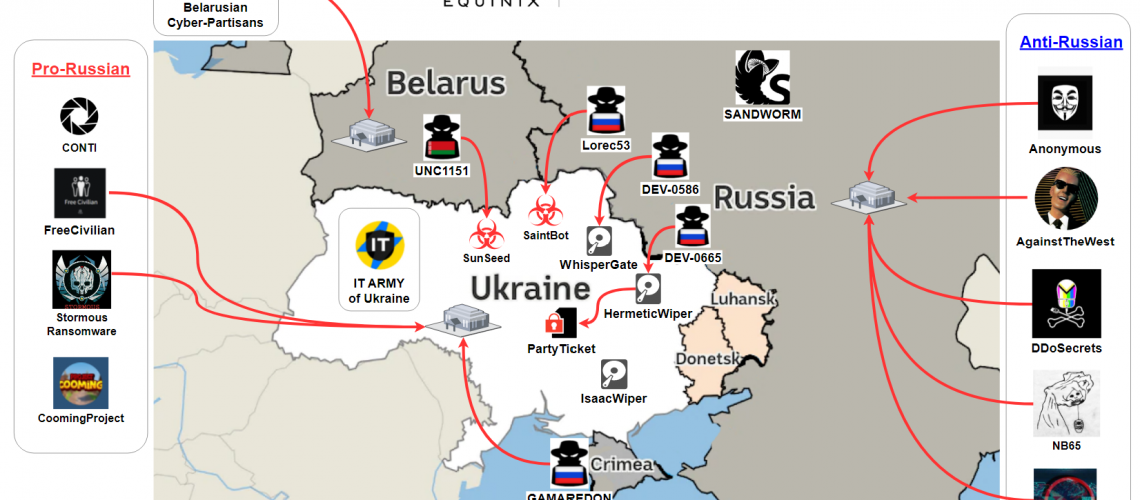Cyber warfare is usually defined as a series of cybercrime attacks that target a state. It has the potential to disrupt vital computer system networks targeting government or civilian infrastructure, disrupting critical systems and causing damage to the state.
The cyberterrorists are politically motivated, with a focus on mass disruption. They target all critical infrastructure controlled by technology, which can cause significant disruption to services in order to create panic and economic downfall for the state.
In cyber warfare, the attacker’s objective is to snoop through a rival’s bank system or sensitive military data to create economic instability. This so-called cyber warfare has no boundaries or limits, and it is a forerunner to advanced persistence techniques, in which nation or state sponsored groups gain access to unauthorised networks in order to infiltrate the enemy.
Cyberwarfare Methods:
- Espionage – Using botnets or spear phishing attacks with a sole purpose of compromising sensitive civilian infrastructure.
- Sabotage – Hostile neighbouring countries may steal information, leverage insider threats such as dissatisfied officers with the intent of attacking a country.
- Denial-of-service (DoS) attacks are ideal for disrupting critical operations and systems, as well as preventing access to sensitive websites for security and other confidential bodies.
- Propaganda Attacks – Spreading mis-information and exposing unwanted content, spreading lies to make people lose trust in their country,
- Economic Disruption – Targeting computer networks, banks, stock markets, and payment systems to either steal the money or block accessibility to it.
- Electrical Power Grid – Attacking the targeted country’s power grid would disrupt communications and shut down power.
- Ransomware – It is a type of malicious software that threatens to block access to data by encrypting it and it can only be decrypted until the victim pays a ransom fee to the attacker.
Past Cyber Warfare attacks:
- Even before the Russian/Ukrainian war started, powerful replanned cyberattacks ravaged Ukrainian websites. Cyberwarfare isn’t something happening today, it’s been happening for a decade.
- Attacks by Russia – (a) Operation Armageddon in 2013; (b) Operation Snake; (c) an attack on elections in 2014; and (d) a power grid hack in 2015 and 2016.(e) Energy Companies Attacked -Black Energy 2015 (d) Attack on State Treasury 2016 (f) Petya virus – supply chain attack 2017 and once again in 2022 by the Russian Republic.
- Attacks by Ukraine – (a) Operation Prikormka 2016 (on Donetsk People’s Republic and Russian Republic) (b) Channel One 2016 (hacking corporate servers (c) Surkov Leaks, and many attacks supported by civilians and NATO-supporting countries in 2022.
Current Cyber Warfare attacks:
- Ukraine’s largest bank, Privatbank (commercial bank), was hacked using a distributed denial of service (DDoS) attack.
- Phishing campaign SunSeed (malware) targeting public Sector
- Foxblade (aka HermeticWiper) Trojan attacks targeting public/private and military.
- Cyberattack on Border Control Station, targeting refugee related activities
- IsaacWiper & HermeticWiper a malware attack , a disk-wiping malware, targeting financial sector.
- SMS Spam / Disinformation Campaign – State owned banks began to receive fake SMS and disinformation against Ukraine targeting civilians
- Defacement of Government Websites, targeting civilians and public sector.
- WhisperGate Wiper attacks, targeting private and public sector.
Cyber Warfare support for Ukraine:
- Ukrainian agencies received the support of the CRRT (cyber rapid response team- comprising six member countries of the EU) deployed across Europe at Ukraine’s request.
- Upon Ukraine’s request, a Lithuanian-led cyber rapid-response team, is helping to cope with growing cyber-threats.
- Australia is providing cyber security assistance to the Ukrainian government.
- Hacktivists have declared a cyber war against Russia.
- The global hacking group) has declared a cyber war against Russia and has claimed responsibility for disrupting the websites of an oil giant, a state-controlled media agency, and a number of websites belonging Russia and Belarus.
- Facebook, YouTube and Twitter removing disinformation targeting Ukraine
- Many Apps and IT Services offered from NATO countries where removed from Russian region
Conclusion:
There are numerous other potential warfare references over the entire history and that could be investigated to give comparative bits of knowledge into the disappointments or advantages of various procedures. No matter what the particular commitment, the reality of the situation is that fighting by its very nature is always showing signs of change and is fashioned with potential disappointment focuses. The Ukrainian clash is only quite possibly the latest model and is appropriate to showing how more established winning procedures can fail when they are met with new fluctuations in a battle climate.



